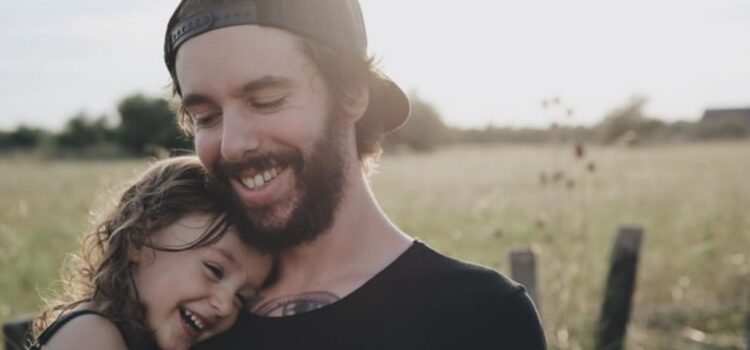

This article is an excerpt from the Shortform book guide to "Good Inside" by Becky Kennedy. Shortform has the world's best summaries and analyses of books you should be reading.
Like this article? Sign up for a free trial here.
Do you feel like you’re a bad parent or that you have a bad kid? Does parenting seem like an endless struggle to control your child’s behavior?
Dr. Becky Kennedy, a clinical psychologist and a mother, aims to encourage parents who feel this way. In her book Good Inside, she shares her effective parenting approach, which is based on attachment theory and the Internal Family Systems (IFS) model.
Keep reading to understand the power of blending attachment theory parenting with the IFS model.
Dr. Becky’s Approach to Parenting
Kennedy’s key principle is an unshakeable belief that you and your child are good people at your core—you’re “good inside”—even when you’re struggling. Understanding that you and your child are both good even when you’re struggling allows you to do the following two things:
- See challenging behavior as a clue to investigate rather than a problem to control.
- Lead your child with confidence, and have them follow.
According to Kennedy, there are two main reasons why applying these principles is hard. First, humans have a negativity bias: We’re evolutionarily wired to pay more attention to negatives than positives so that we can quickly identify and act on problems. Second, it’s likely that you were raised by parents who didn’t separate your behavior from your core identity.
Kennedy’s approach has a theoretical basis in modern psychology, specifically attachment theory parenting and the Internal Family Systems (IFS) model. Let’s take a look at each one to understand why Kennedy considers them to be so powerful.
Attachment Theory Parenting
Attachment theory explains that babies are driven to seek a strong connection with caregivers who keep them safe and care for them. Children instinctively protect their attachment to their caregivers, adjusting their behavior to the cues they get from their parents. If parents are responsive to their children’s needs and feelings, children learn that they have a secure base from which to go explore the world. On the other hand, if parents shut them down, children develop self-loathing or shame as a result of having feelings that their caregivers respond negatively to. This leads to becoming adults who are constantly trying to please others or who accept poor treatment as normal.
(Shortform note: In Attached, Amir Levine and Rachel Heller explain that attachment theory is rooted in research from the 1960s when psychologists Mary Ainsworth and John Bowlby—credited today as the founders of attachment theory—described the importance of parent-child bonding. By studying children raised in orphanages, they learned that kids who lacked an attachment figure had a much higher chance of stunted physical, emotional, and intellectual development, even if they had adequate food and shelter.)
Internal Family Systems
Kennedy’s approach also borrows from the Internal Family Systems (IFS) model, which views a person as made up of different parts, each activated by different contexts, and resulting in contradictory feelings and experiences. Having a strong sense of self requires knowing that you’re multifaceted and being able to flow through different feelings and experiences.
The IFS model is helpful for teaching children that their emotions and feelings are part of them, but not their whole selves. For example, your child might be assertive and expressive at home, but quiet and unsure at school. Similarly, she might feel overwhelmed when she gets called on at school, but impatient when she doesn’t get attention at home. By getting to know herself and understanding the different feelings she can have, she will be able to tolerate each of them better and not let one single way of being or feeling take over her whole self.
(Shortform note: To help your child understand that her feelings and experiences are part of her but don’t define her, you can follow the suggestions laid out by Daniel J. Siegel And Tina Payne Bryson, authors of The Whole-Brain Child. They outline developmentally-appropriate ways to help your child from becoming lost in her emotions. For example, with a very young child (ages 0-3), you might simply comfort her and assure her that she’ll feel differently soon, whereas, with an older child (ages 6-9), you might explain the difference between feeling a certain way and being a certain way.)
Attachment Theory Parenting + IFS
Brought together, attachment theory and the IFS model show that children are made up of different parts and that they’ll unconsciously decide which parts are worthy or not according to how secure they feel expressing them. A child who’s naturally shy in social situations, for example, but who constantly gets shamed by their parents for this, might learn to fake extraversion or avoid social settings altogether. The first option isn’t healthy because it forces the child to shut down the cues they get from their mind and body, and the second option prevents them from fully experiencing life.
(Shortform note: The behavioral and emotional patterns that develop in childhood can have a determining effect on who a child ends up becoming. Some psychologists argue that people unconsciously decide which new aspects of their personality to develop according to how well they line up with their current self-concept. This is why it’s difficult for adult children to outgrow the image of themselves that their parents created in their mind and to break away from behavioral patterns they may have created in response.)

———End of Preview———
Like what you just read? Read the rest of the world's best book summary and analysis of Becky Kennedy's "Good Inside" at Shortform.
Here's what you'll find in our full Good Inside summary:
- A parenting manual to help you build a positive relationship with your child
- Why time-outs, rewards, and serious conversations don't "fix" kids
- Strategies to deal with ten common parenting challenges






